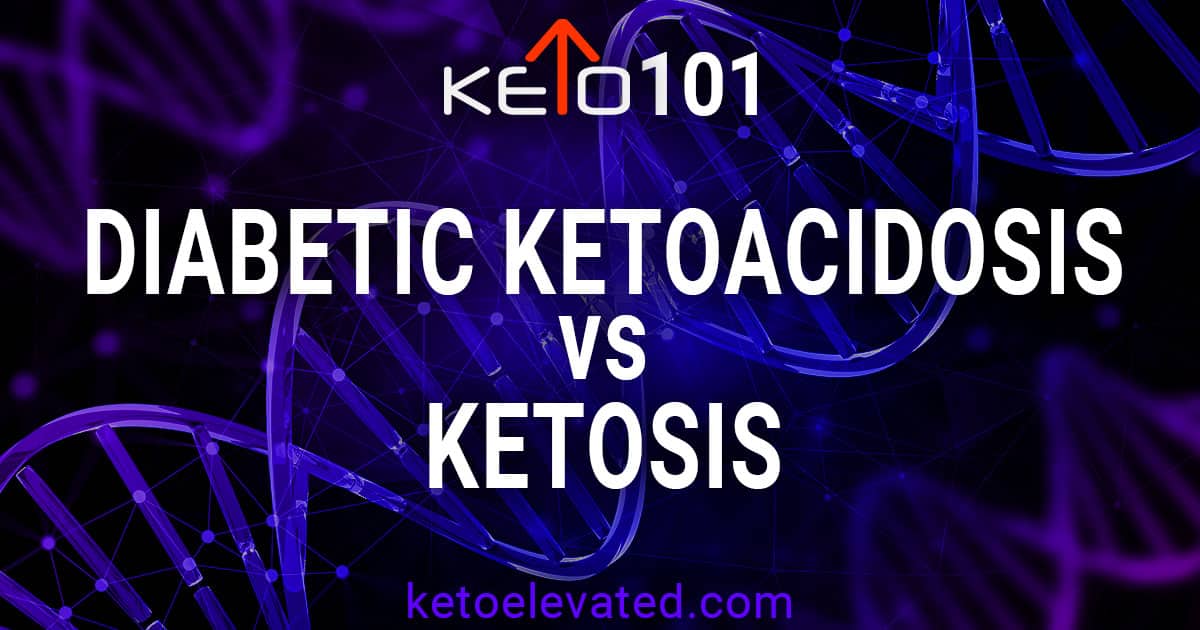There is a distinct difference between Diabetic Ketoacidosis, Nutritional Ketosis, and Exogenous Ketones.
Diabetic ketoacidosis is a dangerous state that occurs in the absence of insulin. What happens is your blood sugar levels rise, but it’s insulin that needs to pull the sugar out of the blood into the cells. This absence of insulin results in the blood not being able to deplete itself of the sugar, and the sugar will not be absorbed into the cells. So your body thinks it’s starved of energy in the absence of blood sugars and begins producing abnormal amounts of ketones. There is nothing to manage the production of ketones and blood sugar, ending up with very high levels of both, which can be quite dangerous. Diabetic ketoacidosis can’t happen if there is enough insulin present in the body.
Nutritional ketosis is the process of your body breaking down fat as a source of fuel and creating ketones. This only happens when following a low carbohydrate – high fat diet.
Exogenous ketones, such as KETO//OS, are ketone bodies that you can take and absorb into your body without being in a state of nutritional ketosis. Taking exogenous ketones will elevate your level of ketones for 3 – 6 hours. There are many benefits to taking exogenous ketones as well.
So is a ketone supplement, such as KETO//OS, safe to take for diabetics? If you are a controlled diabetic, and you’ve been approved by your healthcare provider to take exogenous ketones. Then yes, it’s quite safe. And, there could be a great benefit due to the beneficial impact of insulin sensitivity that is associated with ketones and bhb (beta hydroxybutyrate). It’s important to remember to manage your blood ketone levels as much as you manage your blood sugar levels. There are a couple different ways to test your ketone levels. As well, don’t forget to read up on our top 10 useful tips for taking an exogenous ketone supplement.

